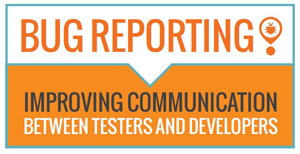In our last blog post, we discussed ad hoc testing—a software testing methodology in which the tester manually finds bugs and issues in an application. A similar approach is done through exploratory testing. So similar are these two testing methodologies that many individuals often mistake them for the same thing. In reality, however, they carry out different functions.
What is Exploratory Testing? 
Exploratory testing, is a type of manual software test where testing occurs informally and naturally. With exploratory testing, testing takes place as the tester goes through more and more of the application. On the surface, it seems like you are testing “on the fly,” but in reality, QA testers need to be aware of where problems that might occur and how to look out for them.
Exploratory vs. Ad hoc
While exploratory testing does require a more hands-on and casual approach, it also has a formal strategy that ad hoc testing lacks. It is more organized, and there are typically some goals or actions in mind. In other words, a tester deploying exploratory testing will have some set boundaries, targets, and end-goals, and they must also document each action that they take so that defects can be reproduced later on in development. As a result, exploratory testing often offers the freedom of ad hoc testing with the organized methodology of more formal testing strategies.
Here at Beta Breakers, our team of quality assurance testers is well-versed in both exploratory and ad hoc testing. Contact us today to learn more.


 With Experience in Quality Assurance & Testing Desktop Software, Mobile Apps, Websites & Web Applications for Nearly 30 Years, Beta Breakers has become the Premier Software Quality Assurance Labs and Application-Testing Provider -
With Experience in Quality Assurance & Testing Desktop Software, Mobile Apps, Websites & Web Applications for Nearly 30 Years, Beta Breakers has become the Premier Software Quality Assurance Labs and Application-Testing Provider - 


Leave a Reply